Escaping the Facebook Bubble
Following revelations that Facebook sold private data to third-party app developers earlier this year, #deletefacebook became a thing and, for the first time ever, more daily U.S. users were quitting than joining. I found this amusing, since I had quit over a year ago. I didn’t quit because I objected to Mark Zuckerberg’s siphoning off personal data. That didn’t surprise me in the least. How else did people think Facebook became a $500 billion company? I quit for entirely personal reasons.
I had become addicted.
I like to think of myself as a successful humor columnist. And I used to earn a modest living selling my work to name-brand magazines. Then the editors I had cultivated over the years started getting replaced by humans born when some of my current undergarments were manufactured. These millennials had their own favorite writers from websites with ultra-trendy if nonsensical names like Boing Boing, Gizmodo, TorrentFreak. I was getting a lot more rejections than acceptances. Then even the rejections stopped.
But it didn’t depress me. Because when I powered up the computer every day to see nothing of interest in incoming email, I could cheer myself up by clicking on Facebook. Because among the 10 billion or however many Facebook members existed somewhere in the world, there were always a few who remembered my writing — people I could count on to “like” posts daring to reminisce about the Monkees and Monty Python movies. These were sweet people just as dismayed by what was happening to mainstream media and popular culture as I was. Sometimes, more than 300 people engaged with my posts. This was validation: I was still a successful writer.
My audience was out there. I could see their “likes” and “loves” and “LOLs.” But in reality, they were people who read what I wrote just because I happened to be the best thing — or the first thing — on their Facebook newsfeed at that moment. And they didn’t have to pay me a cent to read it. I had unwittingly become a full-fledged member of the Facebook sales force, helping to sell ad space with my copy and getting paid nothing in return.
Yet I hadn’t noticed because Facebook’s developers are paid well to maximize its addictive value. The social network is exquisitely designed to keep its users chained to the screen and involved as long as psychologically possible — and longer — to give each of us the perfectly tailored fantasy of staying completely in touch with the current events and the people we want to know about in the precise way we want to know about them.
Facebook can be anything we feel is lacking in our own personal lives. To conservatives, it’s the Rosetta Stone for translating liberal distortions of the truth. To liberals, it’s for clearing up the conservative distortions. To insurance salesmen, it’s a cocktail party where people are fascinated by their sales pitches.
I was in the bubble like so many others. Then one day, I was on the beach with my 6-year-old daughter, staring at my phone instead of watching her. I was reading half-baked opinions about Donald Trump by some guy I met on vacation in 2008. And I missed her first-ever handstand. The infuriating reality of how I was wasting my time hit me in a flash. I was liberated.
Well, not yet. I still had some major detoxing to do. Saying goodbye on Facebook isn’t easy.
I was shocked by how many Facebook friends begged me not to quit when I announced I would. Many were people I’d never heard from before. Some were familiar names I had “friended” because I respected their work but had no idea they ever saw my stuff until they told me how much my posts meant to them.
Many of them seemed equally addicted to the Facebook experience. And they didn’t want to lose a fellow addict. “But what about the networking value?!” one guy asked. Networking is one of the very powerful lures of Facebook. But in reality, nothing amazingly good ever came out of my Facebook decade. It never landed me a real job, or a book contract, or even a single freelance assignment. It only seemed like it always would — not unlike the elusive jackpot you always imagine with every slot pull. A ton of useless “U da man!”s was my biggest payout.
To some “friends,” it was as if I had posted a suicide note and was leaning out of my high-rise bedroom window. To me, it was more like being in a crack den and theirs were voices trying to convince me that cleaning up and leaving was a bad idea.
But I jumped. I deactivated my account and deleted my phone app. And the timing couldn’t have been better because I had previously made plans that same weekend to visit a cabin up in the woods with no cell service owned by a buddy who had never joined Facebook. “Why do you need to be validated to be happy?” he asked when I described my separation anxiety. “Why is it so important to your self-identity for strangers to read your words and laugh? Isn’t it more important to be a present father than a popular writer?”
The first 24 hours of any addiction withdrawal is always the worst. Every time something funny happened, I died inside not sharing it.
But I was off the grid. Even if I hadn’t deactivated Facebook, I wouldn’t have been able to access it. And as the weekend wore on, Facebook detox turned into rehabilitation as we played guitar, drank Coors Light, and watched North By Northwest with our families.
A week later, not using Facebook felt as natural as being abused by it had been. Two weeks in, I started seeing some major improvements in my life.
Instead of learning what my former college roommate eats for breakfast, I walked my daughter to school without once checking my phone. Instead of “aww”-ing at a former co-worker’s puppy climbing stairs, I admired how beautiful my wife looked in real life.
Every now and then, I’d get a text or email from someone only just noticing my absence, someone asking “how do I get in touch with you?” without realizing that they just had. (One sent a message to my wife, worried that I had died.)
There was a brief Facebook backlash to my exit, but it was a sarcastic one that made me laugh. A childhood friend started a group called “We Never Liked Corey Anyway,” adding my wife to the group to be sure I’d know about it.
My favorite post in that group was: “Can you imagine how huge of an ego boost this group would be to him?!”
It actually was, and that’s part of why I belong in real life, not on Facebook.
Since writing this piece, the author has found a full-time job that requires his presence on Facebook. He swears he spends no more than an hour a day on the site, and it’s all strictly business.
This article is featured in the July/August 2018 issue of The Saturday Evening Post. Subscribe to the magazine for more art, inspiring stories, fiction, humor, and features from our archives.
News of the Week: Bad Emmy Noms, Brains on Facebook, and the Best Baked Beans in the World
And the Nominees Are …
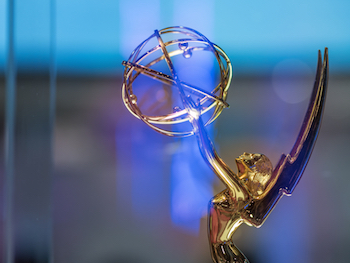
Emmy nominations were announced yesterday morning. You can read the complete list of nominees here, but let’s talk about a few nods that stand out.
I don’t see how Cuba Gooding Jr. was nominated for Outstanding Lead Actor in a Limited Series or Movie for his portrayal of O.J. Simpson in The People v. O.J. Simpson. Talk about a miscast. But it was great to see Bryan Cranston nominated in the same category for playing LBJ in All The Way, and Benedict Cumberbatch as Sherlock Holmes in The Abominable Bride. Tom Hiddleston was nominated for The Night Manager. If he wins, maybe Taylor Swift will write a song about it after they break up, about how he cared more about the award than her.
The Outstanding Comedy Series category is a complete mystery to me. The Middle — the best comedy on television — wasn’t nominated yet again. Veep probably deserves to be there, but Modern Family for the 300th year in a row? Ahem.
It’s great to see Comedians in Cars Getting Coffee nominated for Outstanding Talk Variety Series, though we truly are in a different Emmy world now because that show is online-only. But I hope Seinfeld gets the award over Fallon, Kimmel, Corden, Maher, and Oliver. They’re fine, but CCC is truly something different.
The Emmy Awards will air September 18 at 7 p.m. ET on ABC.
Did anyone else find it odd that the nominations for the Emmys — the award that honors television — weren’t televised on television? They had a livestream online, but E! or one of the networks usually airs it. It’s true the nominees are announced later now — 8:30 a.m. PT instead of 5:30 a.m. — but one of the networks could have shown it, too.
This Is Your Brain. This Is Your Brain on Facebook. Any Questions?
I used Facebook a few times for around nine months total. I used Twitter every single day for eight years. I had to leave both of them for many, many reasons, and at the top of the list was that they were too much of a distraction. So I can believe the results of this study, which says that being addicted to Facebook isn’t that much different from being addicted to drugs.
Researchers at California State University-Fullerton published the findings in Psychological Reports: Disability and Trauma. They found that the brains of people who compulsively used Facebook showed the same brain patterns as people who used drugs and people addicted to gambling.
I bet a lot of people won’t pay any attention to studies like this, but you should think about it the next time Facebook is down and you go to Facebook to … post that Facebook is down, or go to Twitter to post that Facebook is down (or vice versa). If you use Facebook regularly, can you go even a few days without checking it?
Pokémon Go (No, Seriously, Please Go)
Sometimes a pop culture phenomenon comes along that completely takes me by surprise and confuses me. As I’m now in my 50s, I often think of what Danny Glover said in Lethal Weapon: “I’m too old for this &#*!”
The latest craze appears to be Pokémon. No, you haven’t traveled back in time to 1995; it’s something new, Pokémon Go, and it has apparently taken over the lives of everyone from the ages of 5 to 25. At least I hope that’s the cutoff age, because I don’t want to think about 47-year-olds walking around town with their smart phones, looking for various Pokémon (if that indeed is the plural — the name is short for the original Japanese name “Pocket Monsters”) that are hidden from view until you use that smartphone to see and “capture” them.
It sounds harmless enough, until you’re not watching where you’re going and you walk into another person or crash your car. Or you go to the 9/11 Memorial or Holocaust Museum to play your game. Both are official Poké Stops. And now I hope this is the last time I have to type Poké Stop.
Who Was D.B. Cooper?
Last week, the FBI officially closed one of the most famous hijacking cases in U.S. history, the D.B. Cooper case.
If you’re not familiar with the 1971 mystery, Cooper got $200,000 in ransom after hijacking a Northwest Orient plane to Seattle. He told everyone he had a bomb, and he then jumped out of the plane with a parachute and vanished forever. Cooper was never found — in fact, no one even knows if that was his real name — and a lot of investigators don’t even think someone could have survived the jump from a Boeing 727. In the past 45 years, none of the many tips have panned out (though a young boy did find a bunch of old $20 bills in 1980), so the FBI has decided to officially close the case. They say, however, that if any solid lead comes up, they’ll look into it.
One of the theories about the end of Mad Men was that Don Draper would turn out to be D.B. Cooper and vanish forever. It was a really goofy theory, but if you look at the artist’s sketch of Cooper, they do look a bit alike.
Is There Something Wrong with Lena Dunham?
If you’re at college and you eat sushi in the dining hall, you’re probably a terrible person.
That is apparently the opinion of Girls actress Lena Dunham, who says that serving sushi in the dining hall of her alma mater Oberlin (or any college or university) is “cultural appropriation.” It’s not only wrong that they’re serving things like sushi and banh mi, they’re serving bad sushi and banh mi, which is “disrespectful.” As The New York Post reports , Oberlin students protested because the sub-par versions of the ethnic foods served at the school disrespect the countries the foods are from and the people of those countries.
Sigh. I’m too old for this … well, you know.
Someone should tell Dunham that, in America, a lot of foods are “culturally appropriated.” I’ve had loads of bad pizza in my life, but I didn’t protest about how it was an insult to Italy (and I’m Italian). I’m not even sure the words “disrespectful” and “food” should appear in the same sentence. This whole thing is so stupid it’s almost painful.
By the way, Dunham also wants to remove guns from the subway ads for the action movie Jason Bourne. She wants you to deface the ads by actually ripping out the section where he’s holding a gun. (Note: please don’t do this.)
Maybe in the next movie, Bourne can attack the bad guys with culturally appropriated sushi instead.
The Ambiguous Cylinder Illusion
Can you guess the secret behind this finalist for the 2016 Best Illusion of the Year? It’s not special effects or an unfair trick, there really is something going on (and don’t read the YouTube comments, because that’s cheating):
I’ll have the answer next week.
It’s National Baked Bean Month

July is National Hot Dog Month, and last week I told you about this year’s hot dog eating contest at Nathan’s. And what goes better with hot dogs than baked beans? July is National Baked Bean Month, too.
Here are two recipes for beans, one sober and one not-so-much. The first is Boston Baked Beans, because I’m from Boston and I get to pick the recipes that go here. It features molasses, brown sugar, bacon, ketchup, mustard, and Worcestershire sauce. And here’s a recipe from Epicurious for Drunken Beans. The “drunken” part comes from the bottle of beer you add.
Upcoming Events and Anniversaries
Joe DiMaggio’s streak ends (July 17, 1941)
The official Joe DiMaggio site has a multi-part podcast about his 56-game hitting streak.
Hunter S. Thompson born (July 18, 1937)
I wonder what the Gonzo journalist would think of this year’s election?
Bruce Lee dies (July 20, 1973)
Lee was in Hong Kong to have dinner with former James Bond George Lazenby when he collapsed from an acute cerebral edema caused by a reaction to medication.
Comic-Con opens (July 21)
Here’s the complete schedule for the San Diego pop culture convention.
Marshall McLuhan born (July 21, 1911)
The professor and philosopher who thought up the idea that “the medium is the message” also wrote a book a few years later called The Medium Is the Massage.
News of the Week: Mulder, Voice Mail, and Millennials
The X-Files Is Coming Back!
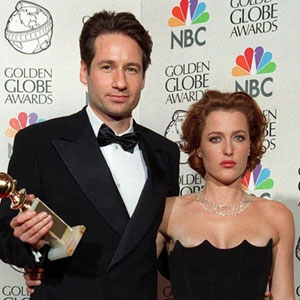
Featureflash / Shutterstock.com
Apparently the truth is still out there,mill because Fox is bringing back Agents Mulder and Scully for a six-episode miniseries later this year. Stars David Duchovny and Gillian Anderson, along with creator Chris Carter, are all back on board. Production will start this summer and the show will probably air later this year.
Having it come back for just six episodes is probably a good idea, so they can tell a contained story and not have to have the actors commit to an entire season. If you watch it, they’ll make more. The night it debuts, be ready for Twitter to implode.
Do You Still Use Voice Mail?
I’m not a boomer and I’m not a millennial. I’m part of Generation X, so I’m not sure if I’m supposed to be in the “voice mail” camp or the “text message/social media” camp. But I’m firmly a fan of voice mail, still, even if certain family members continue to call me and not leave a message, assuming I’ll scroll through my phone (a landline) when I get home to see who called and couldn’t bother to leave a message.
In this video, MarketWatch pits a boomer and a millennial in a voice mail vs. smartphone battle. I’m not sure why the millennial in the video finds voice mail “terrifiying” (or why Kermit the Frog is on the computer screen behind the boomer), but it’s right that people of different ages communicate differently these days. What do you use? Let us know in the comments below.
By the way, “millennial” never looks like a real word to me when I type it.
Blast Off!

(Shutterstock)
Later today, NASA astronaut Scott Kelly — twin brother of astronaut Mark Kelly, who is married to former Arizona Rep.Gabrielle Giffords — will take off for the International Space Station. The launch will take place via a Russian rocket in Kazakhstan, and Kelly will be accompanied by cosmonauts Mikhail Kornienko and Gennady Padalka. They’ll spend a year in space, testing the affects of weightlessness on the body. Why such a long period of time? Because one day we’ll be going to Mars, and it takes a while to get there.
CBS Sunday Morning interviewed Kelly about his trip and got a tour of a mock up of the space station. There’s no way I could spend a year up there for the bathroom situation alone.
All the News That’s Fit to “Like”
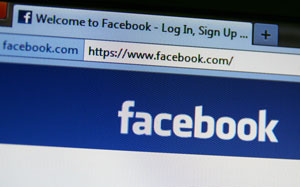
A few years ago I discovered that a lot of people actually think Facebook is the Web. That’s where they “live” online: posting pics, chatting, messaging, finding out what their friends are up to. It’s their “home,” and they see no difference between Facebook and the rest of the online world. I predict that one day Facebook will actually BE the Web, and now the social network is taking another step toward that goal.
Facebook is talking to various news outlets, including The New York Times, National Geographic, and BuzzFeed, about hosting content directly on Facebook. In the olden days (last week), a news organization would post a link to a story on Facebook that would take them to the news organization’s site. Now certain content will be housed inside of Facebook. Now you’ll never have to leave!
I’m all for newspapers and magazines making deals that will help them survive in the digital age, but this scares me. And I’m not the only one. Robinson Meyer at The Atlantic thinks it’s a bad idea, and so does Gawker. The New York Times, one of the companies in talks with Facebook, has a good breakdown on the good and bad aspects of such a deal.
I worry about giving too much centralized news power to one place like Facebook, and I’m also unsure how things like pay walls, subscriptions, copyright, and content that goes against Facebook’s terms of service would be handled.
Tomorrow Is National Something on a Stick Day
I first assumed that the “something” had to be food: a corn dog, cotton candy, a Popsicle, a candied apple. But apparently the day celebrates anything you can put on a stick. If this catches on, you can expect to see a lot of selfies that celebrate the day on Facebook and Twitter and Instagram.
Taken with a phone on a selfie stick, of course.
Upcoming Anniversaries and Events
President Reagan Shot (March 30, 1981)
Wikipedia has a detailed account of what happened that day, and here’s video of ABC News and their live coverage with anchor Frank Reynolds.
April Fools’ Day (April 1)
Here’s one of Rockwell’s April Fools’ covers. The Huffington Post has a list of 17 pranks you can play on your friends (or former friends, depending on whether or not they appreciate the prank).
Pony Express Launches (April 3, 1860)
The website of the National Museum of the Pony Express in St. Joseph, Missouri, has a great history on the delivery service as well as a list of events, a video tour, and even a store.
Dr. Martin Luther King Jr. Assassinated (April 4, 1968)
Read SEP Archives Director Jeff Nilsson’s feature about the life of King.
With Friends Like These …
It’s flattering at first. A long-ago childhood chum or former colleague, or someone you met at a wedding or convention, sends you a friend request on Facebook. After a moment’s hesitation, you accept. After all, they’ve gone out of their way to find you and ask your approval. You look forward to catching up and swapping stories, with your new “friend.”
Except that’s not what happens.
Soon enough, you notice that certain of these individuals never like or comment on your posts, while unleashing their own daily barrage of updates featuring their family and pets, vacations, or meals (invariably described as “Yummy!”). Or they use Facebook as a bully pulpit to pontificate upon movies, politics, restaurants, sports, world events — you name it, they have an opinion. Meanwhile, they could give a flying click about yours — not even bothering to add so much as a Happy Birthday greeting to your Timeline. You can’t help feeling that you’re not interesting or important enough for them to acknowledge, as if they befriended you solely to become part of their audience.
Meet what I call Facebook Farmers. These needy, obsessive-compulsive Web crawlers harvest friends as if they’re in some sort of contest (“My list is bigger than your list!”). Some go out of their way to connect with anyone and everyone they admire or have ever known, adding them like so many notches on a digital bedpost. Some people I know boast upwards of 1,400 friends. Really, what is the point of that? (Full disclosure: I have less than 150 Facebook friends.)
Others will ardently befriend you, then never post or share anything of their own. Why do they bother?
Next are those who appear out of the clear blue, people I have never met who are obviously piggybacking on existing friendships. What else can explain being approached by complete strangers, who just happen to have hundreds of friends, including some of my own?
Perhaps the most annoying are acquaintances from the past who have something to promote — a book, band, event, school, career — which, it turns out, is the only reason you received the friend request in the first place. I was recently chastised by an author friend for inquiring about her health and welfare on her Facebook page. I was tartly informed that it existed only to present information about her books and appearances. How was I supposed to know? Needless to say, I’m no longer “following” her. In fact, I intend to “unfollow” any Facebook acquaintances who have violated the unwritten compact between its 1.35 billion monthly users. Namely, if you ask to be a friend, then behave like one. Still, I don’t plan to “unfriend” anyone, although some deserve it. That’s too drastic, irrevocable, nuclear. Downright unfriendly, even.
Besides, I might just get a notion to send them a birthday greeting on their Timeline.
Facebook: You Have the Right Not to Give Employers Your Passwords
In recent months, an increasing number of companies and organizations have been asking prospective employees not only for their Facebook usernames, but also for their passwords. What started as a seemingly isolated incident in North Carolina last year turned out to be a lot more common than we thought. Last Friday, Facebook addressed the situation for the first time, and the company has this to say: You have the right not to give employers your passwords if and when they ask.
In an update on the website, company Chief Privacy Officer Erin Egan talked about how alarming the practice is, and how it compromises the privacy of everyone on your friend list, along with your own. According to Egan: “It is important that everyone on Facebook understands they have a right to keep their password to themselves.” In fact, if you take a look at Facebook’s Statement of Rights and Responsibilities, it’s a violation to share your password with anyone else.
Meanwhile, Senator Richard Blumenthal (D-CT) is currently writing a bill to prohibit any employer from ever practicing the unspeakable policy. The Senator told the website Politico that he is deeply troubled by this tactic, and that his bill would be ready very soon.
This story originally appeared on Tecca. More from Tecca:
Beginner’s guide to Facebook privacy settings
More colleges and employers requesting applicants’ Facebook passwords than ever before
Senate explores legality of employers demanding your Facebook password
5 Tips to Avoid Facebook Fraud
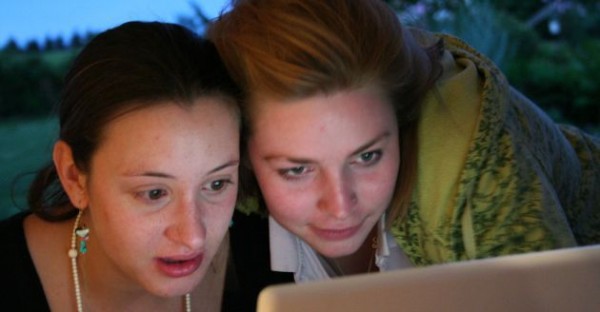
As Facebook continues to take the world by storm, many scammers are also spending countless hours lurking around the network — and they’re not looking for their friends from college. Instead, there are nefarious types who are more than happy to use Mark Zuckerberg’s creation to their own ends: making money, stealing personal information, gaining access to bank accounts, and generally making a nuisance of themselves.
Fortunately, there are some simple ways to keep the bad guys from getting hold of your information, time, and hard-earned cash. All you need is a little common sense and a little less haste when it comes to clicking links.
1. Ignore anybody asking you for money.
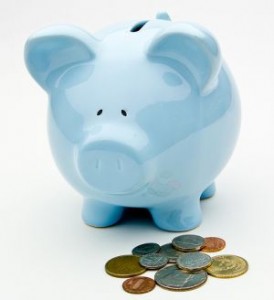
Unless it’s your little sister and she’d like you to spring a $50 so she can buy gas, most people asking you for money on Facebook are up to something.
The most common form of digital panhandling is advance fee fraud, also known as the 419 scam. It’s a variation on the scam from everybody’s favorite African royalty, the Nigerian prince. This time around, rather than spending money to receive your share of someone’s father’s inheritance, you’re asked to transfer cash to help a friend in danger.
If a chat window ever pops up from a friend claiming, “Help! I’ve been mugged in London!” (or Sydney, or Madrid, or Kansas), you should close it again — and contact your friend via another means to let them know their account has been hacked.
Similarly, keep an eye out for charity scammers, particularly around times of natural disasters or national holidays like Christmas or Thanksgiving. To ensure your money gets where you want it to go, do not donate money to any organization that you do not completely trust. You’re much better off going directly to the charity’s website and using one of the listed payment options.
2. If it sounds too good to be true… guess what?
Has a friend of yours “won a new iPad 2 OMG”? Could you win one too, if you just go to a certain website and hand over a bunch of personal details? Chances are, probably not. Look at the person’s post carefully, and you’ll see a few telltale signs that all is not what it seems.
Are there spelling errors from a person with typically impeccable grammar? Are they the sort of person who would enter a competition for, win, or crow about a new piece of technology? How does the “via” indicate the post was sent? Particularly if it’s been sent from an app you don’t recognize, you should delete the post and let your friend know their account has been compromised.
3. Look before you log (in).
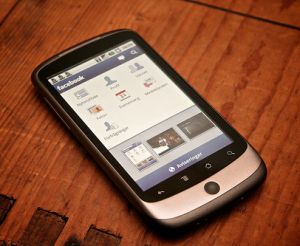
Phishers are very good at making their fake websites look very similar to the real thing, in the hope that they can steal your username, password, and other personal details.
If you receive an email that looks like a Facebook notification, check the link that it takes you to. If it’s anything other than http://www.facebook.com, do not enter your login details. Simply close the window and take no further action.
4. Resist temptation.
If a private message pops up or a friend posts on your wall that you “won’t believe” what’s being written about you on a blog, take a deep breath and do not click the link. Delete the post and (you guessed it!) let them know that they’ve been hacked. These links, just like the ones about the video you just have to see or the photos of the girl at the party, are all ways of preying on human nature — you can’t help but want to know what’s behind the curtain.
We’ll spoil it for you: There’s probably nothing there. Perhaps a pile of advertising, perhaps a lengthy survey (and a pile of advertising), perhaps a form for you to enter all sorts of personal details (with a pile of advertising on the side). There’s definitely no scandalous blog, no terrifying photographs, and no information on who’s been looking at your profile. Sorry.
5. Use your common sense.
If a friend’s Facebook post seems not quite right, don’t follow the link. Instead, send them a quick message (or contact them using another method) to let them know their account may have been compromised.
Of course, sometimes you’ll slip up. Curiosity may get the better of you, and before you know it, you’ve installed an app that’s posting bizarre messages all over your friends’ Timelines.
Don’t worry, you can still recover from this. Head to Account > Privacy Settings > “Edit your settings” (under Apps and Websites) > Edit Settings (under “Apps you use”), and then click the X next to any apps you want to delete. Take a few moments to go through this list while you’re there, and remove any apps you do not still use or those that you didn’t mean to add in the first place.
Then delete any posts that the app has made in your name; they should be listed on your Timeline, too. If you want, you can make a post on your Timeline about what’s happened, but there’s no need to send everybody a private message.
Finally, change your Facebook account password — and next time, be more careful.
This story originally appeared on Tecca. More from Tecca:
Facebook Guide: Everything you need to know about the world’s most popular social network
Everything you need to know about Facebook Timelines
Facebook lowers six degrees of separation to four
The Facebook Generation
Facebook, over the past year, has reached a critical mass. No longer relegated to hip college students trying to find dates, the Facebook community now includes everyone from 20-something celebrities to grandmothers and sewing circles.
As a 20-something myself, I thought it would be interesting to profile the ways in which Facebook is changing how my generation communicates with friends and family.
I am part of the first generation that will never long for a high school reunion; Facebook has made it more difficult for me to lose track of old acquaintances. Whenever I go on Facebook, I see a stream of all the things my friends are currently doing. Even if I don’t speak to them for three months at a time, there’s still a “connection.”
In the past, this type of passive communication on a mass scale was impossible. If I wanted to stay connected to a group of 15 friends from long ago, I might have sent letters, but it would have been far from efficient. I would have written the same things to each of them. The personal content of these letters would have been small compared to the informational pieces that would be the same in the other 14 letters. Facebook makes your information a kind of boilerplate. It becomes a given, so conversations with old friends can be a lot more productive when I do see those people. In a way, I never really lose my connection.
That feeling of social ties is the magic of a service like Facebook. My family, like a lot of other modern families, is spread out across the Unites States, from Florida to California. I also have family members overseas. I’m lucky if I see my entire family once a year. Yet, with the assistance of Facebook, I can apply the the same efficiency of staying connected with high school friends as with my family. My sister, for example, recently had her first child. I have met my niece only a handful of times since then, but she is constantly in my thoughts thanks to a stream of pictures and updates about how she’s doing. It’s a lot like the old family Christmas cards except it’s happening every single day of the year.
The Internet has come a long way in the last couple of decades, and we’re seeing some noticeable generational trends. For instance, one of my friend’s aunts “friended me” on Facebook, and I noticed that she had three times the number of Facebook friends as her nephew, despite the fact that she has only recently started to spend more time on the Internet. She spends more time on Facebook than he does. Yet he is part of the younger generation that grew up using the Internet.
The beauty of Facebook is in the packaging of the service. Almost every facet of Facebook is technology that existed from years before: e-mail, instant messaging, photo galleries, personal Web pages, RSS, etc. Facebook has taken these function, which young people have been able to do for the past decade, and made them more user-friendly, more accessible—for young and older generations alike.
Facebook is the second act in the people’s Internet Revolution; the first being America Online, which spurred the adoption of the Internet in the homes of ordinary Americans. In a similar fashion, Facebook is spurring the adoption of Internet use in demographics that have been dismissed as the non-Internet users. It gives people a reason to be online in a way that simply checking e-mail, the 1996 equivalent, did not. Facebook is active in a way that the general population may find more rewarding.
Instead of waiting for items to roll in addressed to you personally, as in the case of e-mail, you can take the initiative to find out about your friends without having to speak to them directly.
The ability to communicate (or not communicate) with your friends in different ways also heightens the ‘stickiness’ of the service. For example, it tells you who else is using Facebook right now. You can then exchange instant messages with any of them. There’s always one more thing to check, see, or do on Facebook. It’s like a never-ending dinner party and all your friends and family are invited.
Whether or not Facebook is a festive Christmas card or more of a raucous dinner party is up to the user (or non-user). Suffice to say, even if the Facebook service goes offline tomorrow, services like Facebook have changed the way we communicate in our society.
